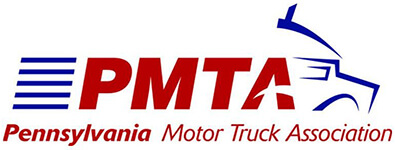PMTA Responds to TROC Report
“I was honored to have served on the Transportation Revenue Options Commission (TROC) and appreciate Governor Tom Wolf and PennDOT Secretary Yassmin Gramian recognizing the important perspective the Pennsylvania Motor Truck Association brings to this critical conversation,” said Rebecca Oyler, President and CEO.
“Pennsylvania roads and bridges are our workplaces, so we know how important it is to ensure sustainable funding to keep our infrastructure up-to-date and in good repair. However, we have to recognize that there are tradeoffs that come with every funding option, and serious consideration must be given to the real-world impacts of the recommendations. The final report lacks this analysis.
“TROC was given a list of potential taxes and fees to increase to close PennDOT’s funding gap, and PMTA is disappointed to see the final report essentially recommends ‘all of the above,’ without weighing the unintended consequences of many of these increases, particularly for commercial motor vehicles.
“Pennsylvania is already the third most expensive state in the nation in which to operate a truck. Doubling registration fees, increasing fuel and vehicle sales taxes, and tolling interstates will likely be enough to put us in first place, not to mention the other cost increases on the list. This dubious distinction would make it nearly impossible for Pennsylvania trucking companies to compete with those in other states. It will also increase costs across the board for in-state manufacturers, farmers, other businesses, and consumers that rely on trucks to transport their goods. Unintended consequences like this are not addressed by the TROC report.
“The final report should not be viewed as a comprehensive plan that balances various state interests to fund our transportation system,” Oyler said. “Instead, TROC’s report is a list of potential options, among others, that can be considered by members of the General Assembly as they weigh the consequences of policy choices and their impact on the state’s economy.” Funding options in the report include:
Road Use Charges
- Mileage-Based User Fee (MBUF) – 8.1-cents per-mile on all miles travelled in PA
- Electric Vehicle (EV) MBUF Pilot
Tolling
- Corridor Tolling – Toll Interstates/expressways based on distance traveled along that highway
- Managed Lanes (Limited Lane Tolling) – Toll additional lanes on a highway where the traffic is regulated by charging a toll or by encouraging carpooling
Redirection of Funding
- A State Police Funding – Eliminate transfers from Motor License Fund to PSP
Fees
- Vehicle Registration Fee – Increase all vehicle registration fees 100%
- Electric Vehicle Fee – Introduce a $250 fee for EVs and eliminate the Alternative Fuels Tax on EVs
- Vehicle Lease Fee – Increase current rate from 3% to 5%
- Aircraft Registration Fee – Introduce a $50 registration fee for all aircraft in PA
- Transportation Network Company Fee – Establish a $1.10 per-trip fee on all TNCs and taxis in PA
- Vehicle Rental Fee – Increase current fee per rental from $2 to $5
- Goods Delivery Fee – Establish a $1 fee on all deliveries to an end point in PA
Taxes
- Vehicle Sales Tax – Increase tax from 6% to 8% (PGH and Phil rates would increase from 7% to 9% and from 8% to 10% respectively)
- Gas Tax – Index gas tax to inflation
- Jet Fuel Tax – Increase tax from 1.5 cents to 4 cents per gallon
Other
- Ad Valorem (Value-Based) Vehicle Tax – Tax passenger vehicles annually based on their current value
- Reduction to Registration Fees with Ad Valorem – Offset to vehicle registration increases on passenger vehicles with an Ad Valorem tax
- Elimination of Gas Tax with full MBUF – Replace most of gas tax proceeds with MBUF in Phase 3
The TROC report proposes a phased approach with near-, medium-, and long-term proposals to address shortfalls in funding levels. To address declines in fuel tax revenues over time, the report calls for a Mileage Based User Fee (MBUF) in the long term to fully align revenues with identified needs of $18.15 billion – requiring an additional $9.5 billion annually within the next five years to close the projected gap.
“Such a drastic increase in funding for infrastructure over a short period of time may outstrip the capacity of our industries to manage these projects, especially with the current labor shortage affecting many, trucking included,” said Oyler. “This must be weighed against the extensive tax and fee increases included in the recommendations. A more balanced approach would advance revenue strategies as capacity grows.”
PMTA continues to be concerned about the lack of transparency and oversight in PennDOT’s Public-Private Partnership process, which has been used to pursue tolling of nine bridges across the state. PMTA supports Senator Wayne Langerholc’s (R-Cambria) SB 382, which would require P3 projects to undergo a full public review process and legislative approval. This would require the TROC’s recommended corridor tolling and managed lane tolling to be fully and transparently considered before being implemented.
PMTA looks forward to continuing discussions with the administration and the General Assembly on ensuring responsible and sustainable funding for our transportation infrastructure without disproportionately impacting industries as critical to the state economy as trucking.
